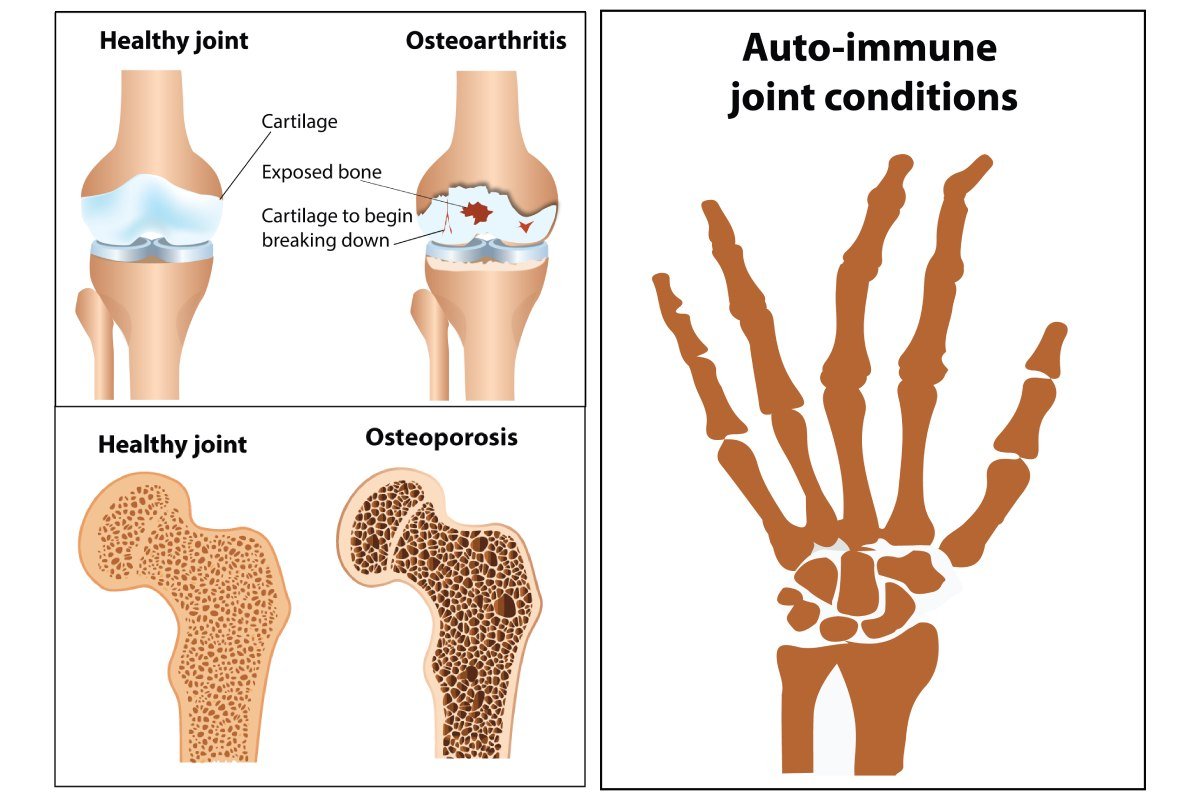Collagen and especially Type II collagen, is central to the structural integrity of your joint: tendons, ligaments and cartilage. Clinical research shows collagen can support knee joint health and is effective for arthritis and inflammation. Low molecular weight collagen peptides work best for the joints.
When you are young, your body has no problem producing lots of collagen. But, from the age 20 it starts to decrease by 1% each year. This percentage significantly increases over the age of 40.
LACK OF COLLAGEN CAN PLAY A ROLE IN:
- Osteoarthritis
- Osteoporosis
- Auto-immune joint conditions

FOUR BENEFITS OF COLLAGEN FOR BUILDING STRONGER BONES AND JOINTS:
1. IMPROVE BONE MINERAL DENSITY
Bone mineral density (BMD) is a measure of bone density. It reflects the strength of bones and is often used to test for conditions like osteopenia and osteoarthritis.
As you age and your collagen levels drop naturally, so does your bone mass. Low BMD is associated with the development of osteoporosis and weak bones. This is linked to a higher risk of bone fracture. Research shows that collagen supplements may improve bone mineral density.
2. COLLAGEN IS THE BUILDING BLOCK OF BONES
Collagen is one of the primary building blocks of the bones, skin, muscles and ligaments. It’s found almost everywhere in the body. It ensures the structure and strength of the skin, bones, and cartilage. Collagen represents about 90% of total organic bone mass and is vital for the body’s framework, bone strength and flexibility. Evidence suggests that collagen peptides can boost calcium absorption, improve bone mineral density and maintain bone strength.
3. STIMULATE CARTILAGE GROWTH
Cartilage is the rubbery material that covers the ends of joints and bones. Both ageing and repeated movement can slowly cause the cartilage to wear off over time. This results in ligaments and tendons to stretch and bones to rub together, causing pain. By boosting your collagen intake, you can help support healthy bones and protect cartilage.
One study investigated the effects of collagen supplements on 73 athletes. After 24 weeks, participants noticed a significant decrease in joint pain when resting and walking. Another study found that adults who took a collagen supplement for 70 days felt a significant reduction in joint pain. Collagen supplements appear to be effective at managing osteoarthritis-associated symptoms.
4. PREVENT BONE LOSS
As your collagen levels decrease, it can impact your bone density. Research suggests that collagen may not only increase bone density but prevent bone loss in the first place. Research shows that collagen supplements may help to inhibit bone breakdown, which can lead to osteoporosis.
Menopause can increase the risk of developing osteoporosis. One study found that a calcium-collagen dietary supplement reduced bone loss in postmenopausal women. Again, this supports the use of collagen supplements to prevent bone loss and improve bone mineral density.

Thank you for your reading. Join the conversation by posting a comment.